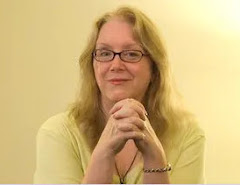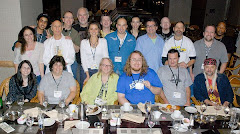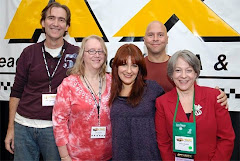2004-VikkiFlawith.jpg) Most of my life I didn’t really make decisions. Well, I suppose I did decide that I couldn’t decide. I didn’t think I had the knowledge to make the choice, or I didn’t trust my own thoughts or feelings. I didn’t want to upset anyone. I didn’t want to be different or strange. So I tried to figure out what everyone else was doing and then I’d do it. Or say it. If I offered an opinion and someone disagreed I’d quickly backtrack or find some way to end up agreeing with them.
Most of my life I didn’t really make decisions. Well, I suppose I did decide that I couldn’t decide. I didn’t think I had the knowledge to make the choice, or I didn’t trust my own thoughts or feelings. I didn’t want to upset anyone. I didn’t want to be different or strange. So I tried to figure out what everyone else was doing and then I’d do it. Or say it. If I offered an opinion and someone disagreed I’d quickly backtrack or find some way to end up agreeing with them.I thought everyone else knew better. And perhaps they did – for themselves. Asking someone else what I should do, when they didn’t know me like I know me, when their tastes or interests were different than mine… when I think of it, that is pretty silly.
I can’t remember when I started to ignore my own thoughts or feelings in preference to others. Probably early on, in school. Desperate to fit in, but never fitting in, I spent my days in a sea of anxiety, afraid someone would talk to me and equally afraid no one would talk to me. When they did talk to me I shrank inside, sure I would say the wrong thing, make a bad joke, say something stupid, be totally boring. All I could hear during any social encounter was the voice in my own head yelling, ‘you are boring you are boring you will say something stupid you are boring.’ And naturally, because I only agreed with them, hardly said a word, and was practically inaudible when I did speak… I was boring, I suppose. I wanted to be included, but at the same time I wanted to be invisible because I knew I wasn’t good enough to belong.
Inside I seethed with creativity. I loved to read books, I painted, I drew, I wrote songs and poems, I played the trumpet and the piccolo, I taught myself to play the guitar, I choreographed dances with my little sister that we did around the pool table in the basement, I sang with my school choir, I discussed the value of education with the vice-principal… see how boring I was?
I feel like it’s taken a life time to find my way back to that creative youthful spirit. The first step on that journey was the first time I really asked myself “what do I, Vikki, want?” And the next step on that journey was the first time I really listened for the answer, from within me.
I was speaking to Debra Russell of Artist’s Edge yesterday [ www.Artists-Edge.com ], and she asked a very interesting question. We were talking about the voice in your head and how it repeats, like a feedback loop, all the negative thoughts and judgments we have about ourselves. Yet, at the same time, we ask ourselves to listen to our inner voice when we are making choices.
So Debra asked me, how do we know the difference between the ‘good’ voice and the ‘bad’ voice? I think that’s a wonderful thing to muse about. Sometimes it takes me awhile to figure it out. Sometimes I have to write in my journal, or go for long walks, or make pro and con lists. Usually I need to find a place of serenity, a quiet place, where I can ask myself what I think. Sometimes I ask the question before I go to sleep and wake up with an answer.
It seems to me that the voice in my head tends to be negative… have a dark energy, it comes from programming or old patterns. It really feels as though it is ‘in my head’. But the other voice, my inner voice, seems ‘lighter’ and ‘brighter’, and it seems to come from my heart.
Making choices is tough. And while I think it’s great to have a vision, and set goals, and work towards them… at the same time I’m aware that we need to… go with the flow. Not every decision needs to be made ‘for life.’ I think that it’s okay if we take the time to explore options, to try new things, to check things out, to experiment with the options.
It’s like when I’m painting. I have a vision in my head of what I want to do… but if I try to force the painting to be what I want it to be… I get blocked, it doesn’t work, I get frustrated. But if I allow the vision in my head to morph, if I ‘follow the brush’… I end up somewhere I didn’t expect. My best work is done when I am just allowing.
Yet I still made the decision it was time to paint. I still did the work of getting out the paints, the brushes, and the canvas. I still sensibly set my easel up in the light. But then, I surrendered to the muse.
















